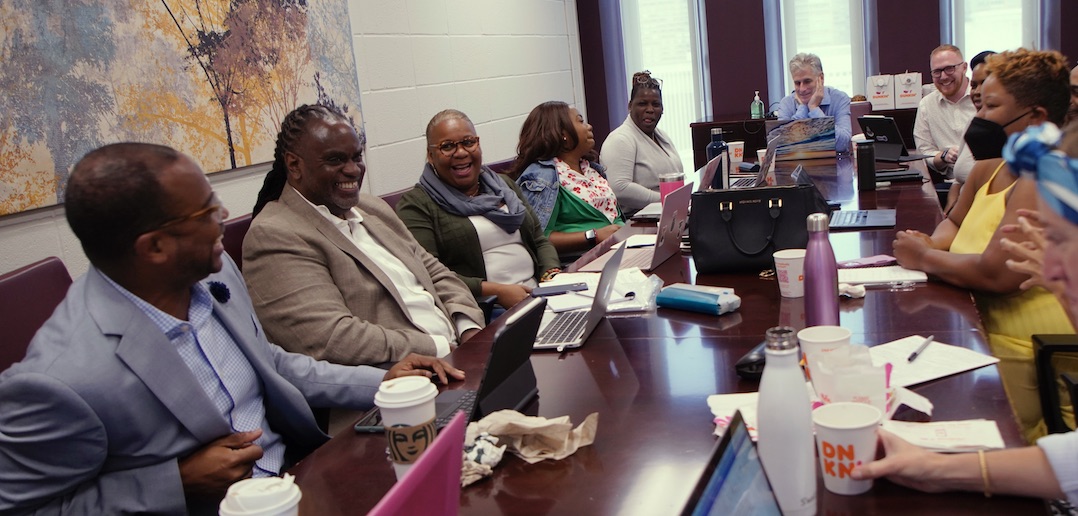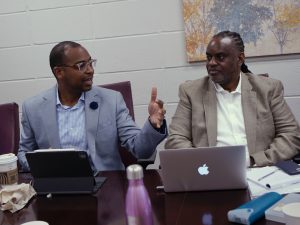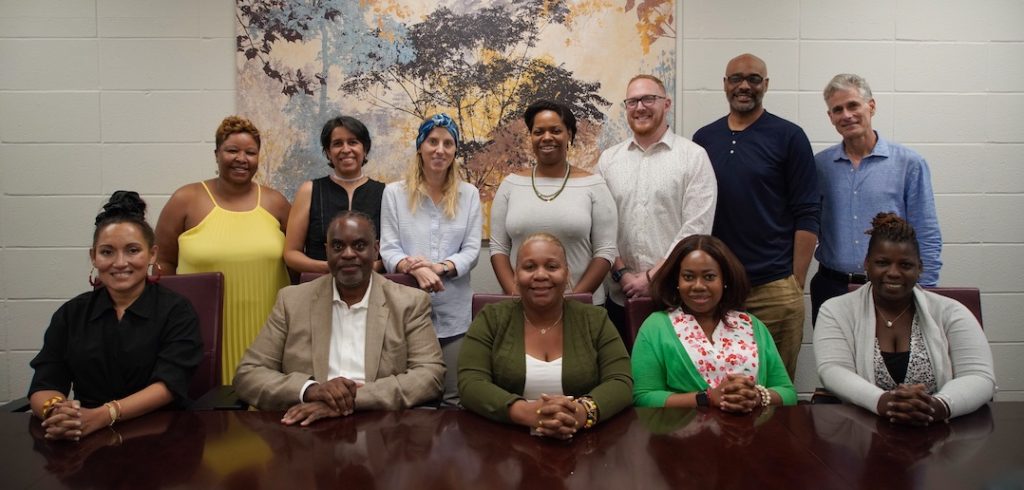“Trying to address race and racism in the curriculum was something that I and a lot of faculty members were trying to do on our own, and grant funding provided by Fordham helped us to support each other in doing this work,” said assistant professor Elizabeth Leisy Stosich, Ed.D., who co-hosted the retreat.
The retreat was specifically designed for members of GSE’s division of Educational Leadership, Administration, and Policy. It was the most recent part of a two-year-long journey initiated by Stosich and her colleague Elizabeth Gil, Ph.D. The two educators sought to bring equity and anti-racism to their own division at Fordham—a program that prepares educators for leadership responsibilities and positions.
A Collaborative Effort with Prestigious Educational Leaders
During the 2021-2022 school year—the first year of grant funding—five ELAP faculty members worked together to center equity and anti-racism in five of their program’s graduate courses. With this year’s funding, they wanted to include students and alumni—educators themselves who possess unique perspectives in leading equity and anti-racism work.
“The most rewarding aspect of coming together was working in community with one another to do deep and meaningful work that is ongoing,” said Gil. “Our faculty’s willingness to share their syllabi and receive feedback was also key for us to delve into strengthening our courses and programs. People’s willingness to share their instructional plans can sometimes be a challenge, but these instructors were willing to be vulnerable in order to help us all improve in our practice.”
The all-day retreat was attended by 11 members of the ELAP program, including former New York City Schools Chancellor Meisha Ross Porter, who recently graduated from Fordham with her Ed.D. and now serves as an adjunct professor at GSE. Together, they analyzed five course syllabi in their program.

‘A Major Impact on Our Curriculum’
First, they looked at the syllabi’s mission statements and adjusted words to make them more powerful and actionable, said doctoral student Lizzette Ruiz-Giovinazzi. Next, they analyzed core assignments and pointed out things that the professors had missed, she said. Who was the author? Did they have a “white-centric” mindset on what leadership should look like? Did the syllabus include resources written by diverse authors who could provide a different perspective?
“I’ve always thought that you can’t criticize the instructor. At the end of a course, you often fill out these surveys that feel very surface-level … But this retreat was so open and interactive. It was a safe environment for us to all talk, and it gave us a voice,” Ruiz-Giovinazzi said. “It created a sense that feedback does matter.”
The retreat was partially facilitated by Edward Fergus, Ph.D., an expert on leading for equity and anti-racism who works extensively with schools and districts. Fergus, who served as the keynote speaker at the 2020 Barbara L. Jackson, Ed.D. Lecture, helped the team to create conditions where they felt comfortable about doing this important, yet sensitive work, and gave them guidance on how to revise their courses and the overall ELAP program. The ELAP faculty plan on sending their revised syllabi to Fergus, who will provide additional feedback for revisions. Then they will incorporate their revamped syllabi in their actual classes as early as this fall, said Stosich.

“In total, we will have revised 10 of our courses to center equity and anti-racism. This will have a major impact on our curriculum,” said Stosich.
Lyntonia Gold, a second-year doctoral student in the ELAP program, said that the decision to include current students and graduates from all programs—including those who studied online and at the Rose Hill campus—allowed a broader range of feedback given to faculty.
“Including a diverse set of stakeholders from various areas of an organization and gathering a variety of perspectives is essential to building a program that values equity and anti-racist practices at its core,” said Gold, who is also an executive director in strategic partnerships for advancing collective equity in the New York City Department of Education’s Office of Diversity, Equity, Belonging and Inclusion.
The retreat may have long-lasting impacts beyond Fordham. Ruiz-Giovinazzi, a Bronx-born Puerto Rican who serves as the assistant superintendent of curriculum and instruction at Nyack Union Free School District, said that she wants to encourage her district’s teachers to share their syllabi with each other and provide constructive feedback, too. The retreat was also influential in a more emotional way.
“I find it very hopeful that the professors took the time to do this work. I was in awe that these conversations were even happening, and I was emotional while driving to the retreat. I was nervous about taking the day off because I’m new in this school district,” said Ruiz-Giovinazzi, who started her position last spring. “But my superintendent was like, ‘This is important work. Go ahead.’ … All of this makes me feel a sense of hope for where education is going.”


